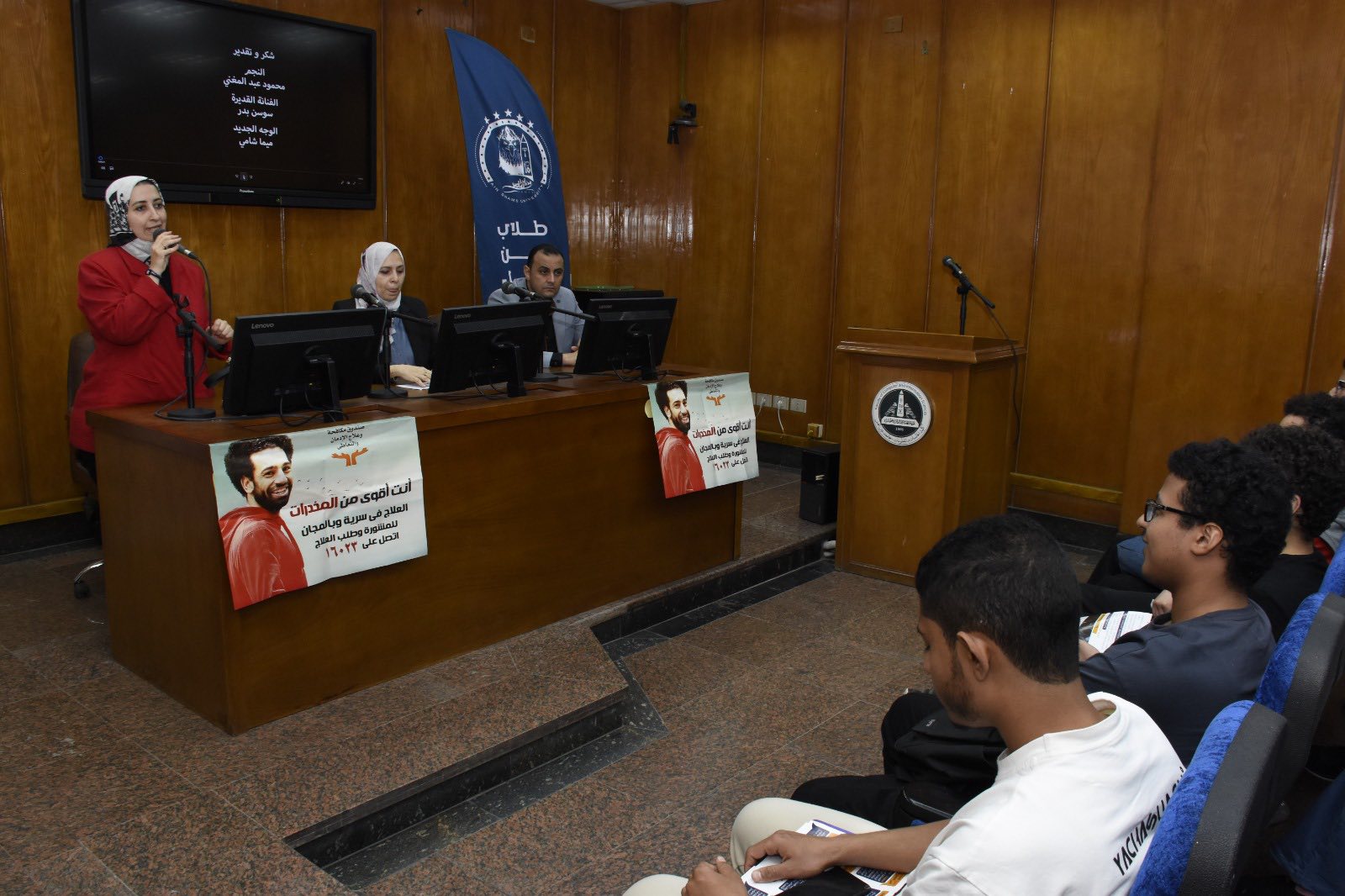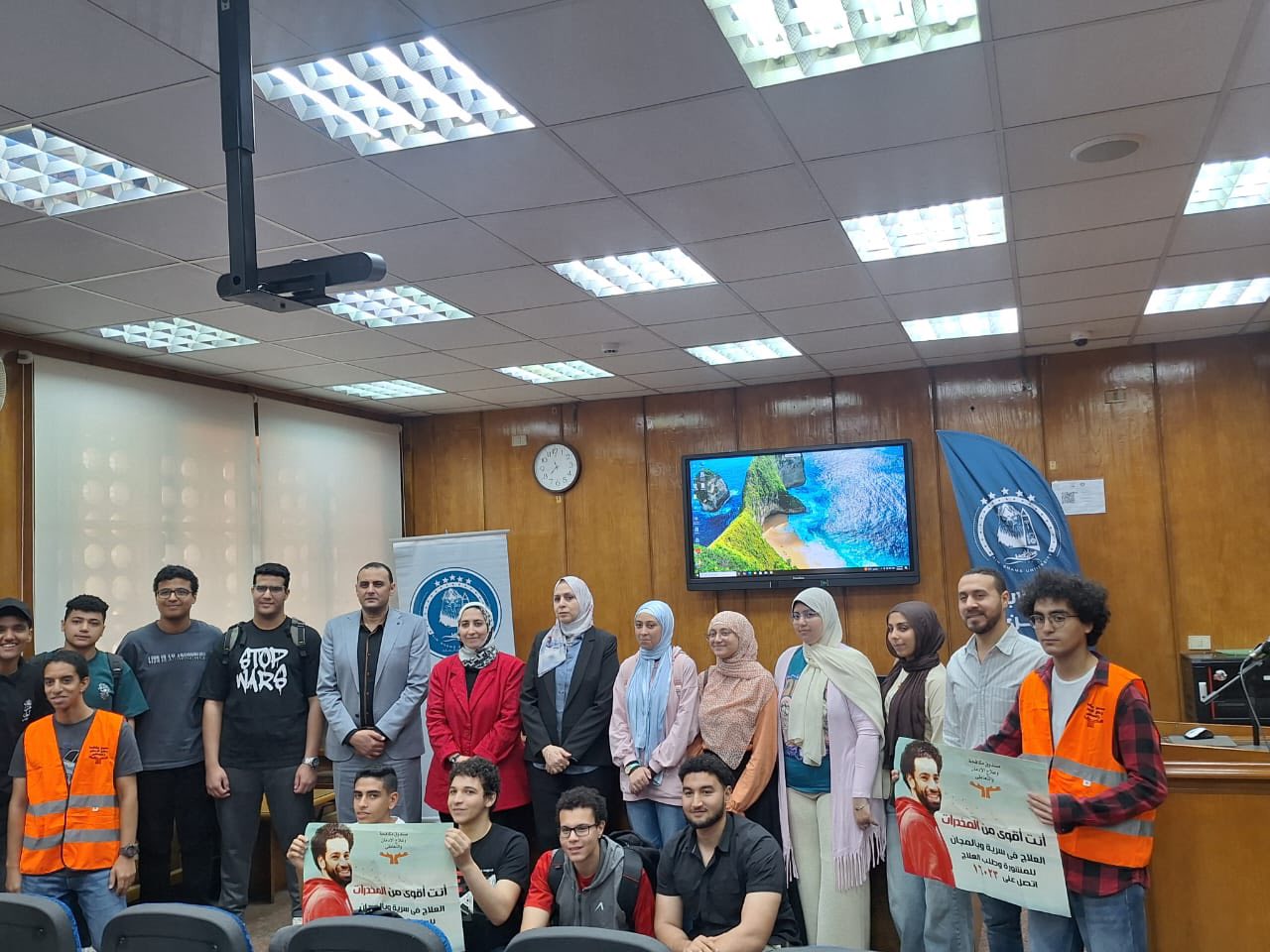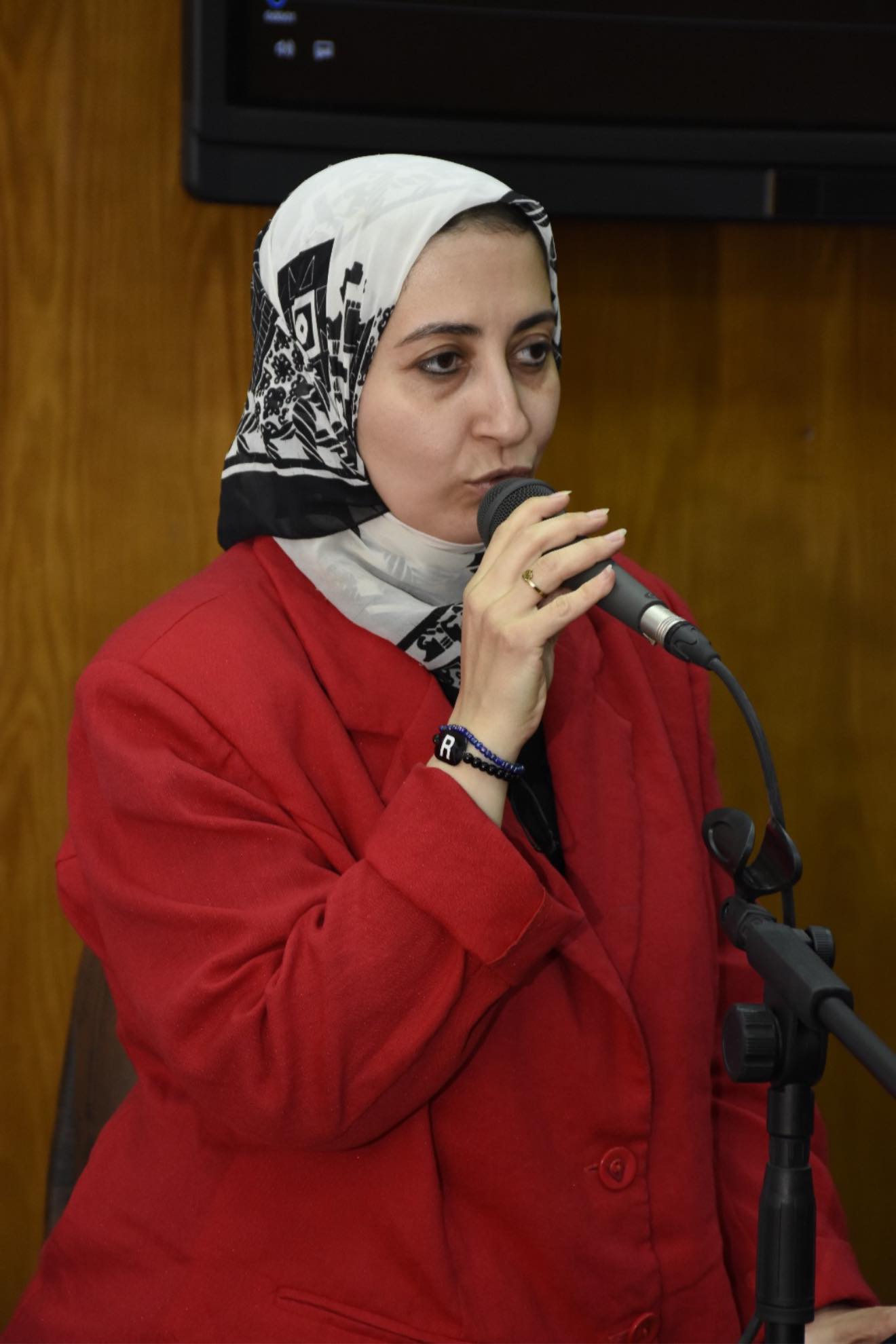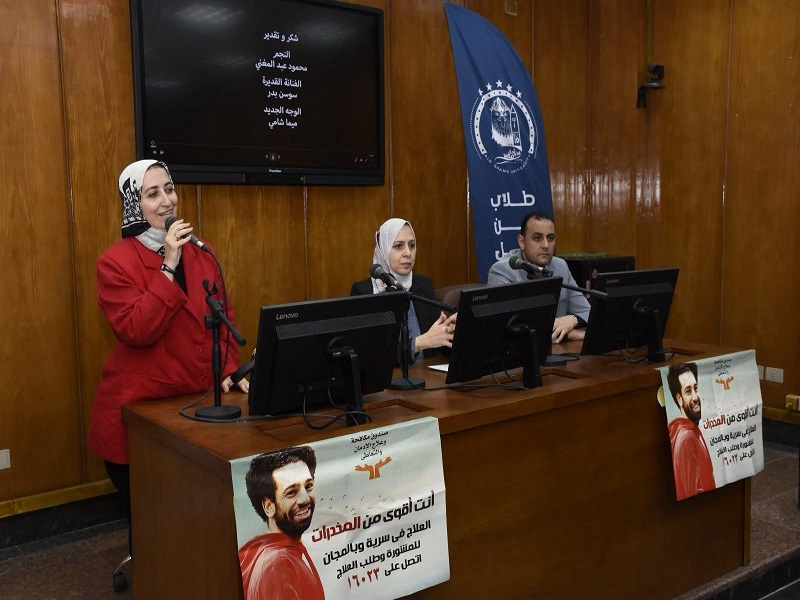A symposium on "The Social Dimensions of Drug Abuse, Its Types, and Its Impact on Society" at the Faculty of Computer and Information Sciences
As part of a series of awareness seminars organized by the Education and Student Sector at Ain Shams University, the Faculty of Computer and Information Sciences hosted an awareness symposium entitled "The Social Dimensions of Drug Abuse, Its Types and Impact on Society." The seminar was held under the auspices of Prof. Mohamed Diaa Zain El-Abedeen, President of Ain Shams University, and coordinated by Prof. Nagwa Badr, Dean of the Faculty of Computer and Information Sciences, Prof. Hala Mushir, Vice Dean for Education and Student Affairs at the Faculty of Computer and Information Sciences, and the Students for Egypt Family at the Faculty of Computer and Information Sciences.
The symposium series is organized by the General Administration of Youth Welfare Office - Student Unions and Families Department and the Faculty Student Union, under the administrative supervision of Mr. Ibrahim Saeed Hamza, Assistant Secretary of the University for Education and Student Affairs, and in cooperation with the Fund for Combating and Treating Addiction and Drug Abuse, headed by the Cabinet.
 |
 |
 |
||
Dr. Rasha Mohamed Rashad, a researcher at the Fund for Combating and Treating Addiction and Drug Abuse, headed by the Cabinet, and Dr. Badr Abdel Aziz, Director General of Legal Affairs at the Fund for Combating and Treating Addiction, affiliated with the Cabinet, lectured at the symposium.
Prof. Hala Mushir, Vice Dean of the Faculty of Computer and Information Sciences for Education and Student Affairs, opened the symposium by emphasizing the importance of national efforts to combat addiction, praising the role of the state and the Fund for Combating and Treating Addiction in raising awareness among university students.
She emphasized that youth are the backbone of the future. They are not only tomorrow's leaders, but also the parents and guardians of future generations. This makes raising awareness of them an urgent necessity to protect them from the dangers of addiction and enable them to actively participate in building a more aware and healthy society.
She pointed out that awareness seminars play a pivotal role in supporting the state's efforts to combat addiction and enhance community awareness. She emphasized that combating this phenomenon is a shared responsibility that requires the cooperation of all parties, starting with the family, through educational institutions, and extending to society as a whole, to ensure a safer and more stable future for future generations.
Dr. Rasha Mohamed Rashad, a researcher at the Fund for Combating and Treating Addiction and Drug Abuse, chaired by the Cabinet, reviewed the importance of reducing demand for drugs, considering them a commodity for sale. She pointed to the need to implement preventative programs targeting university and school students, along with training courses aimed at raising awareness of the dangers of drugs and their health and behavioral effects.
She highlighted the importance of the media and how to overcome inappropriate films and TV series that promote drugs.
She addressed the social dimensions of the phenomenon, how to combat peer pressure, and false rumors about drug use and addiction. She also discussed the role of the family and family relationships in combating the phenomenon and how to detect addiction within the family early.
She also emphasized the importance of psychological rehabilitation during the treatment process, explaining that the Anti-Addiction Fund provides free, confidential, 24 hour counseling and treatment services via the hotline 16023.
Dr. Badr Abdel Aziz, Director General of Legal Affairs at the Anti-Addiction Fund, affiliated with the Cabinet, referred to the legislation pertaining to the drug issue, explaining the legal dimensions of the Anti-Drug and Drug Trafficking Law and the most important features that distinguish this law from its predecessor, which is the expansion of the scope of criminalization from the crimes of being present in a place of drug use, preparing a place for drug use, and mere possession of drugs, which is possession without knowledge, as well as the treatment system introduced by the law, whether by the user applying for treatment voluntarily or by being admitted to a treatment facility instead of a penal facility.


.svg)

